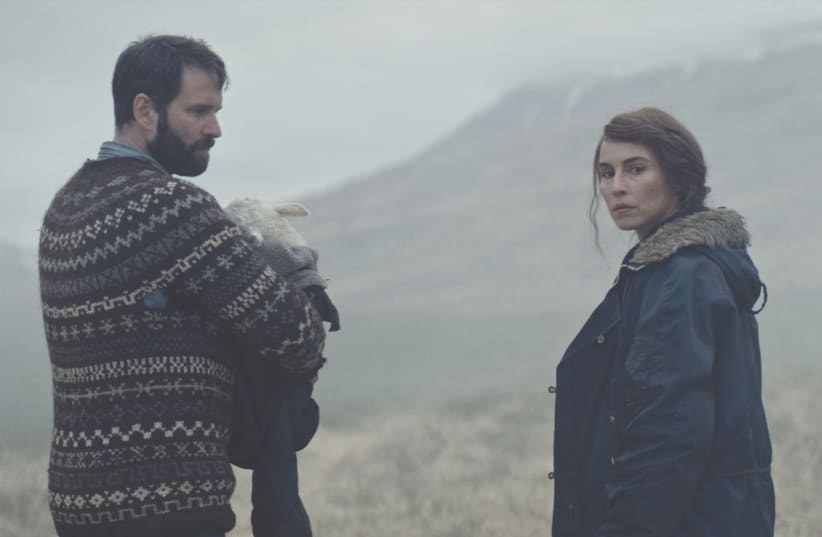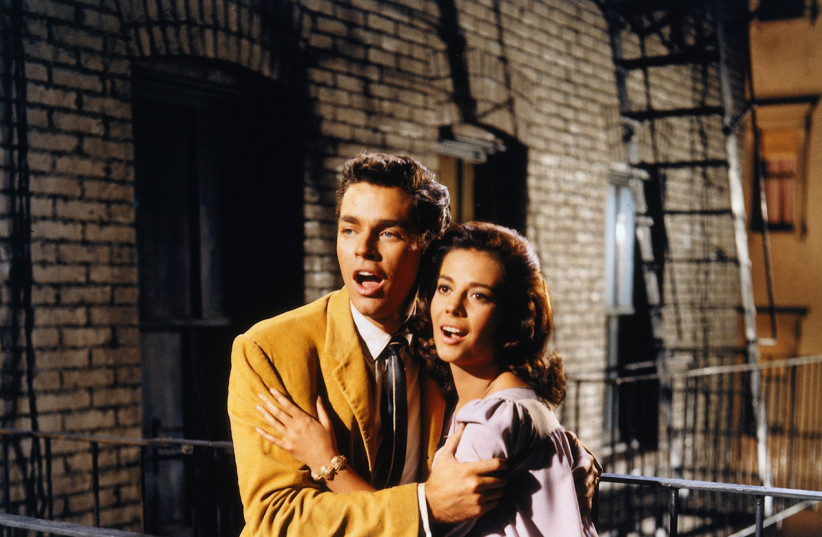The 10th anniversary of the Arava International Film Festival, which runs from November 3-13, marks the return of distinguished guests to Israel’s film festival circuit.
Israel’s film festivals have long drawn the world’s most celebrated filmmakers, but due to the pandemic, the vast majority of guests moved onto Zoom. But at the Arava a number of distinguished moviemakers from around the world will take part in special events at one of the most important Israeli film festivals, which features the best of recent international and Israeli cinema, as well as classics.
Perhaps the location is part of what draws filmmakers to the festival. The unique beauty of the Ashosh Nature Reserve, next to Tzukim, where the movies are shown beneath the starry skies makes for a magical experience and one that is very different from urban film festivals. One of the highlights of this year’s festival will be a screening of Robert Wise’s West Side Story, a classic set in the concrete jungle of New York City, which audiences will enjoy in the midst of nature. The dance sequences in particular, choreographed by Jerome Robbins, will be especially impressive on the big screen.
The guest list this year features a very varied group of filmmakers. Two decades ago, the Mexican film scene spawned a group of filmmakers who broke through internationally and changed the face of Hollywood; among them Alejandro Gonzalez Inarritu (Birdman, The Revenant) and Guillermo del Toro (The Shape of Water), and one of the newest directors to emerge from Mexico, Michel Franco, will attend the festival. He will present his latest movie, Sundown, which stars Tim Roth as an enigmatic, wealthy man who goes on vacation in Mexico and then, for reasons that are initially unclear, abandons his family and goes into hiding. Charlotte Gainsbourg (who appeared in Joseph Cedar’s movie, Norman) co-stars in this film, which generated a great deal of buzz at the Venice International Film Festival where it had its world premiere. Franco also works as a producer and he produced Lorenzo Vigas’s The Box – a dark drama about a teenager who goes to collect the remains of his father who was killed in an industrial accident – which will also be at the festival.
Juho Kuosmanen, who has participated in the Arava Film Festival in the past, will present his new movie, Compartment Number 6, which won the Grand Prix at the Cannes Film Festival. His film tells the offbeat story of a tough Russian man and a lesbian archeologist from Finland who meet when they are traveling by train.
Valdimar Jóhannsson has worked as camera operator and crew member on films and television series around the world, including on Game of Thrones, but he returned to his native Iceland to make his first film as director, Lamb, and will present it at the festival. Lamb, which had its premiere in the ‘Un Certain Regard’ section at Cannes, was awarded an aptly named prize – the Prize of Originality. It is a mysterious, beautifully photographed and, at times, frightening story about a childless couple running a sheep farm in an isolated area, who adopt a creature they find, which they raise as their own child. The Internet is awash with theories about the film and the possibility of a sequel. Noomi Rapace (The Girl with the Dragon Tattoo) stars in the film. Lamb is reminiscent of Jan Svankmajer’s 2000 film, Otesanek, about a childless Czech couple who bring a piece of wood to life and raise it as their own child. Once you see Lamb, you will not soon forget it, and perhaps it is especially fitting that it be seen outdoors in the Arava, in a very different but equally lovely landscape.
The Arava Film Festival will feature a tribute to the late Polish master director Krzysztof Kieslowski and will screen his 1989 series, Dekalog, which features 10 films, each based on one of the 10 commandments, which was co-written by Krzysztof Piesiewicz. Piotr Jaxa, the photographer and cinematographer who collaborated closely with Kieslowski on Dekalog and other films, will attend the festival and present some of his work, including still photographs that will be on display at the Ashosh Gallery in the heart of the artists’ village in Tzukim. The exhibit is arranged so that viewers can walk through photographs of the area where Dekalog is set, as well as view stills. Dekalog was very much a precursor to the current age of artistic, high-prestige television series. The Adam Mickiewicz Institute and the Polish Institute collaborated on this program.
The festival features dozens of recent movies from around the world, as well as some Israeli films. Eran Kolirin’s Let It Be Morning, which just won the Ophir Award for Best Picture and six other awards, will be shown ahead of its release. Its Best Picture win makes it Israel’s official selection for consideration for a Best International Feature Oscar nomination, and a number of the other films that are competing for these nominations – that are their country’s official entries – are part of the Arava film festival.
From Colombia, for example, comes Memoria, the movie that shared the Jury Prize at the Cannes Film Festival with Nadav Lapid’s Ahed’s Knee, which was directed by Thai director Apichatpong Weerasethakul, and which stars Tilda Swinton as a Scottish woman traveling in Colombia who begins hearing strange noises. Ryusuke Hamaguchi’s Drive My Car is Japan’s official entry and won the Best Screenplay Award at Cannes for its story of an actor whose wife disappears suddenly. Kuosmanen’s Compartment Number 6 is Finland’s entry and Jóhannsson’s Lamb is Iceland’s. Those who are interested in this Oscar category (which was once known as Best Foreign Language Film) will welcome the chance to see these potential nominees side by side.
The Arava International Film Festival is one component of the artistic flowering of the region, and there is now an Arava Film Fund, whose director is Eyal Shiray. It is run in cooperation with the Gesher Multicultural Fund and the Arava Community Center, with the support of the Culture Ministry and the Central Arava Regional Council. Some of the movies created by those working with the Arava Film Fund will be shown at the festival, in a section called Shorts in the Desert, which highlights the diversity and creativity in this region.

